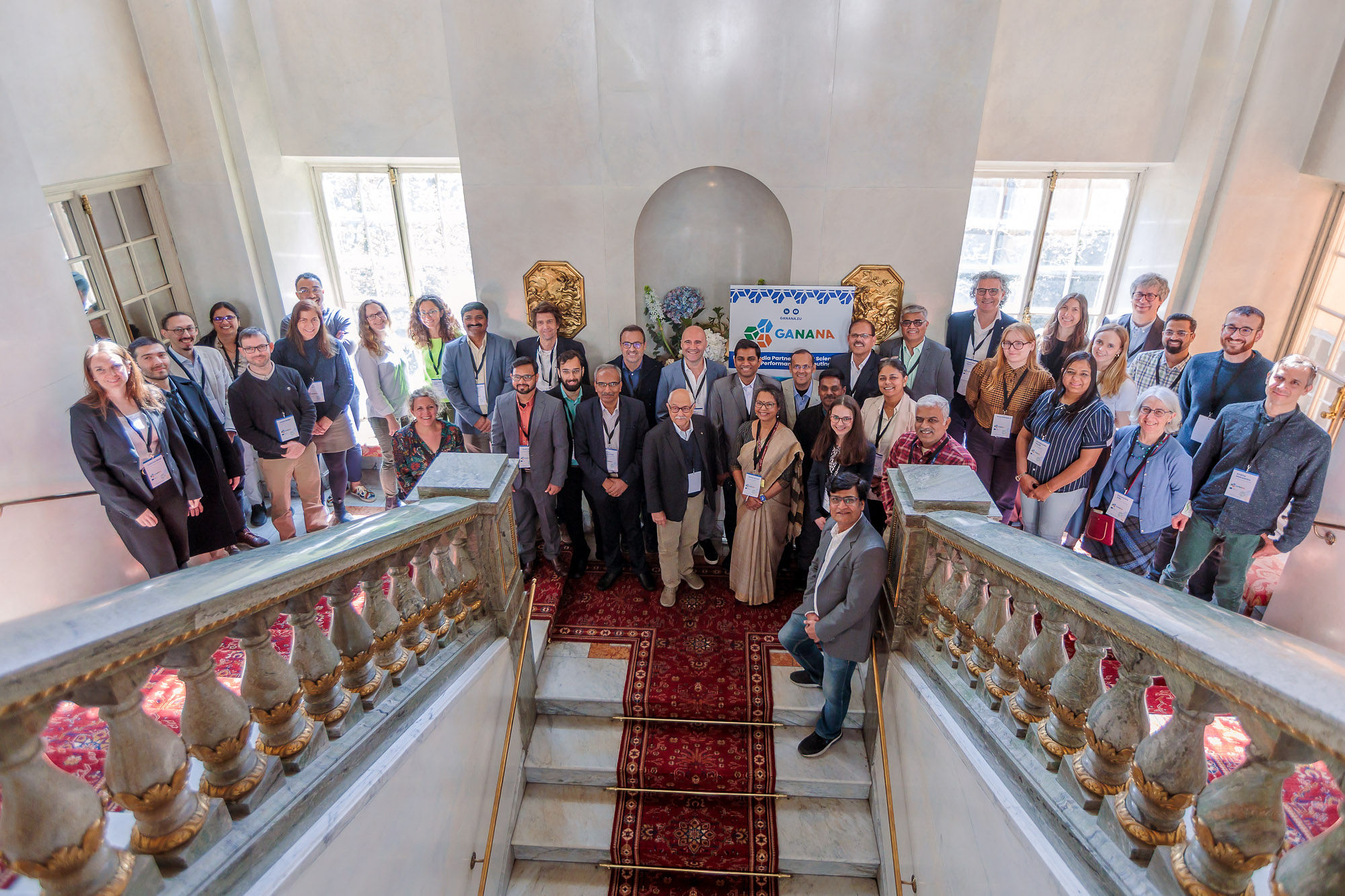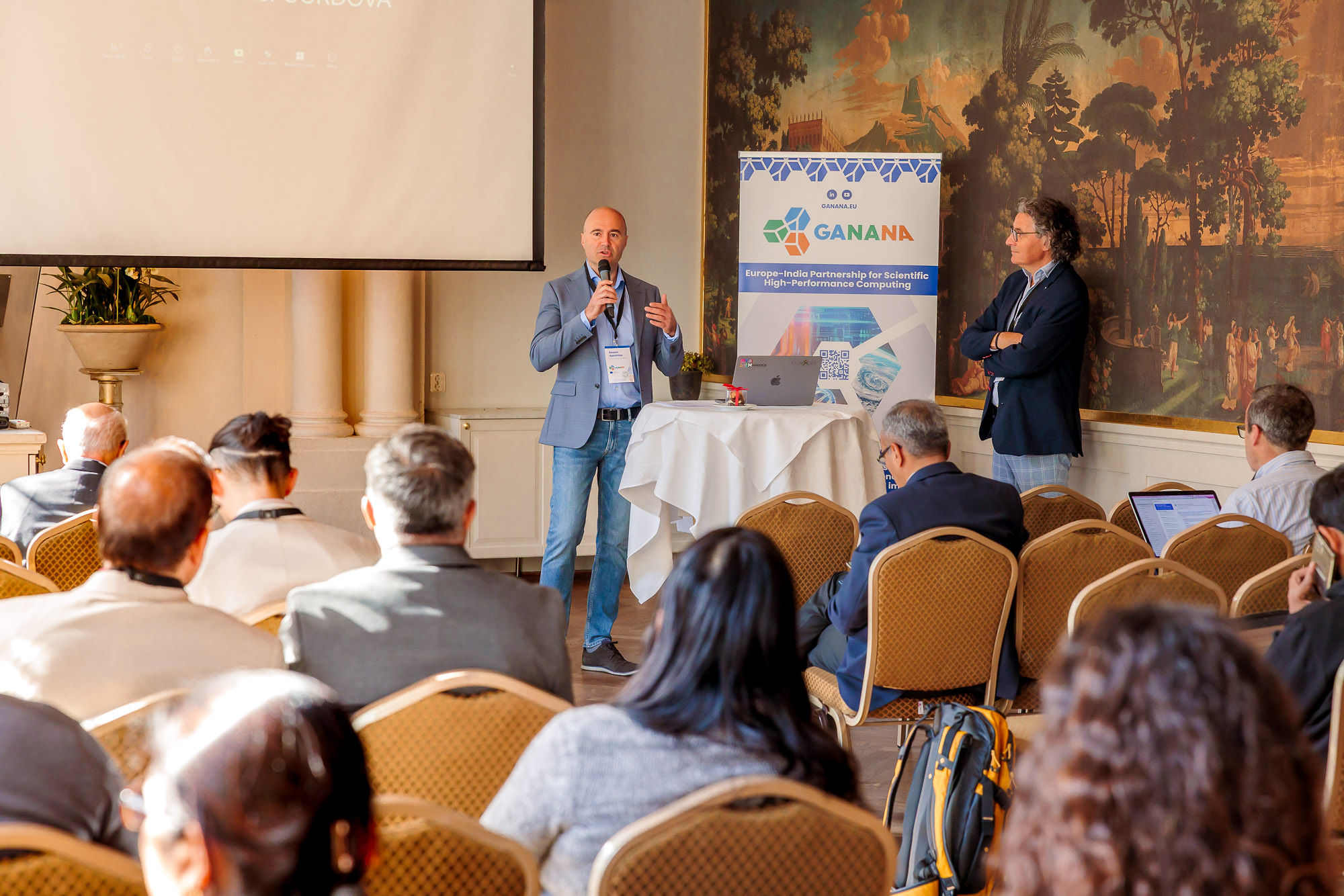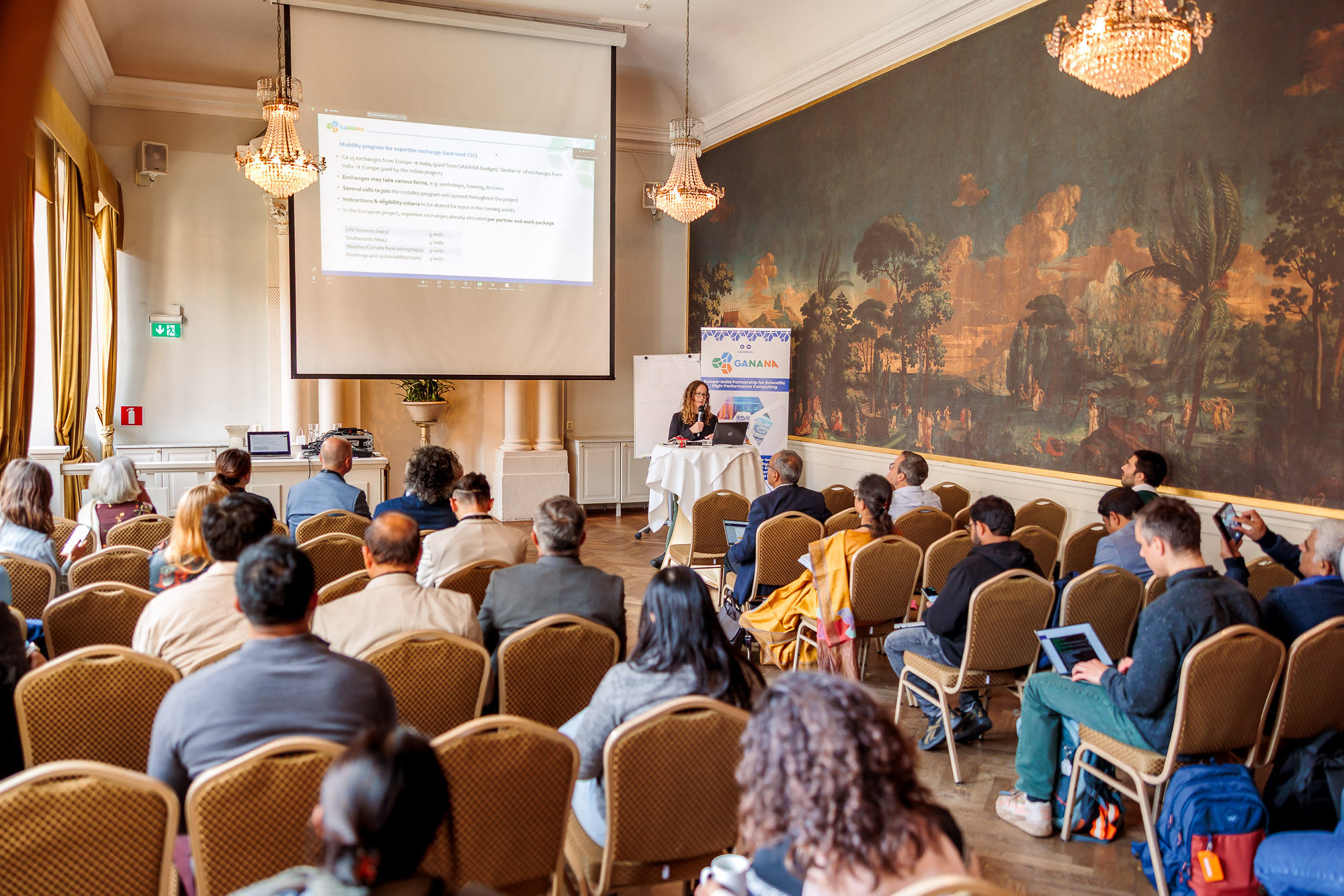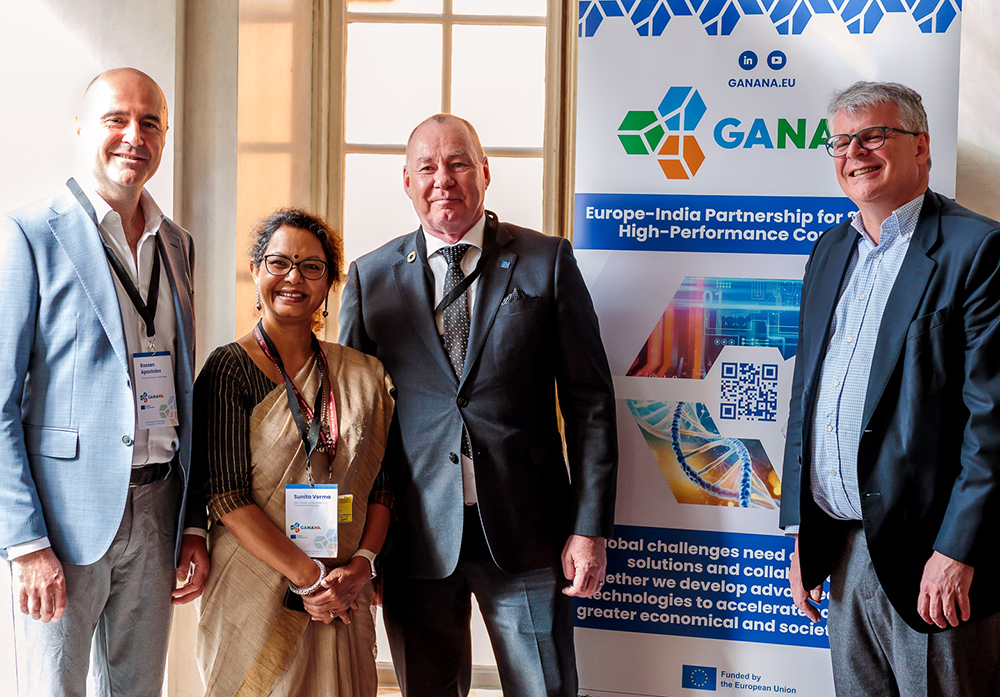Press release: GANANA project launched
Europe-India partnership in high-performance computing kicks off in Stockholm

EU-funded project unites Europe and India efforts to tackle major challenges through HPC
The consortium behind the EU-funded GANANA project successfully launched the initiative during a two-day symposium held in Stockholm, Sweden, on May 6–7, 2025. The event brought together project partners from Europe and India, as well as senior officials from the European Commission, the Government of India, and the Swedish Research Council (VR) and KTH Royal Institute of Technology (coordinator), marking the start of an ambitious partnership.
Global challenges require cross-border collaboration, and the GANANA project stands as a model of EU-India partnership in scientific High-Performance Computing (HPC). By uniting expertise and resources, GANANA aims to create a meaningful impact in scientific discovery, technological advancement, and societal resilience. The project promotes the cost-effective use of HPC while addressing the economic and human costs of natural disasters. Focusing on three key application domains - life sciences, geophysical & natural hazards, and weather & climate - GANANA supports advances in pharmaceuticals, risk forecasting, and disaster preparedness. Beyond its scientific goals, the project invests in training the next generation of HPC experts in Europe and India, helping to train skilled professionals equipped to tackle future global challenges.

“GANANA is a milestone in EU-India scientific relations,” said Rossen Apostolov, Project Director, from the KTH Royal Institute of Technology based in Stockholm. “Through this collaboration, we are building a framework for cutting-edge research that will drive both technological innovation and societal transformation.”
Speaking on behalf of the Indian partners, Dr. Manoj Khare, Chief Investigator, from C-DAC based in Pune added: “This project represents a major step forward in scientific diplomacy and joint capacity-building. We are excited to share expertise, co-develop technologies, and address some of the world’s most pressing challenges using HPC.”

The scientific symposium was attended by Juan Pelegrin, European Commission, Linda Gesenhues, Program Officer at EuroHPC Joint Undertaking, Sunita Verma, Group Coordinator R&D, MeitY Government of India, Anders Söderholm, President of KTH Royal Institute of Technology, Sanjay Wandhekar, Centre Head C-DAC Pune, Magnus Friberg, Swedish Research Council (VR), and other European and Indian funding agencies and research bodies. Their presence underscored the strategic importance of the GANANA initiative in fostering long-term cooperation and mutual growth in digital science and innovation.

GANANA also aligns with broader EU-India policy goals for digital transformation, open science, and inclusive research ecosystems. The project will act as a platform to foster new partnerships, co-design research agendas, and support the training of a new generation of computational scientists.
About GANANA
GANANA is a European Union and Government of India-funded initiative designed to enhance Europe-India collaboration in High-Performance Computing. The project brings together top-tier research institutions from both regions to tackle scientific and technological challenges through advanced HPC solutions.
The GANANA consortium includes leading European and Indian institutions, scientists, and technology developers, combining the domain-specific and technical expertise needed to achieve the project’s ambitious objectives. Scientific excellence and software innovation are driven by some of Europe’s most prominent research groups, drawn from EU Centres of Excellence: BioExcel (KTH, Utrecht University, University of Jyväskylä) CoE for Computational Biomolecular Research; ChEESE (BSC, CSIC, University of Málaga) CoE for Solid Earth Research; and ESiWACE (BSC, CMCC, Eviden) CoE for Climate and Weather modelling. Supporting cross-cutting activities such as researcher mobility, expertise exchange, resource sharing, and capacity building are Europe’s premier HPC centres hosting some of the biggest supercomputers in Europe, MareNostrum 5 (BSC), LUMI (CSC), and LEONARDO (CINECA). The institutions of India includes C-DAC, Indian Institutes of Science, Indian Meteorological Department, Motilal Nehru Institutes of Technology, National Institutes of Immunology, Geological survey of India, National Institute of Seismology. Together, the consortium forms a highly capable, interdisciplinary alliance focused on delivering high-impact, future-ready HPC solutions.
